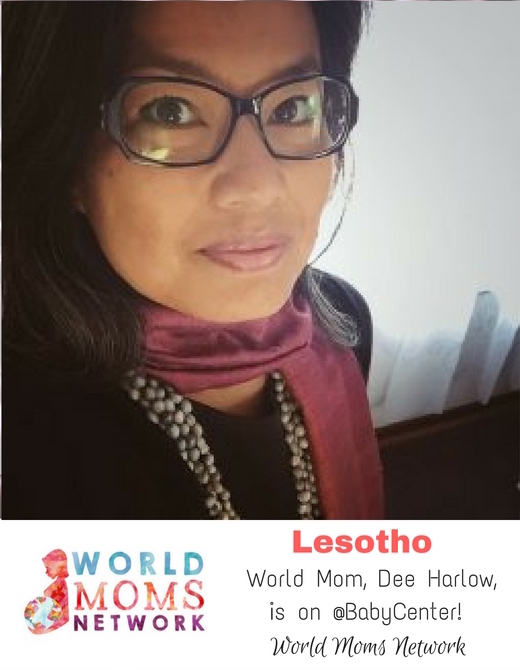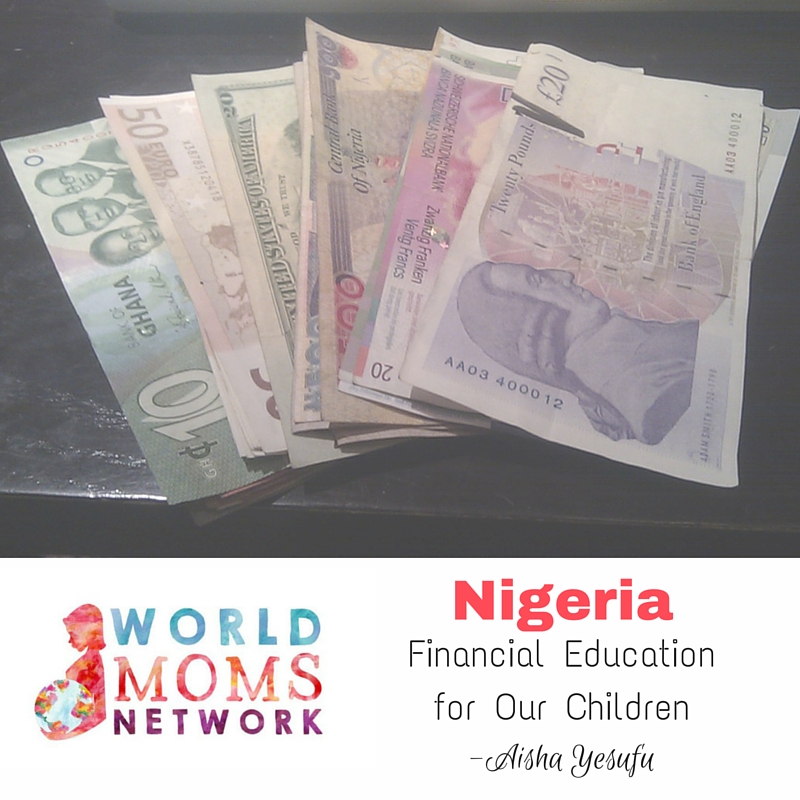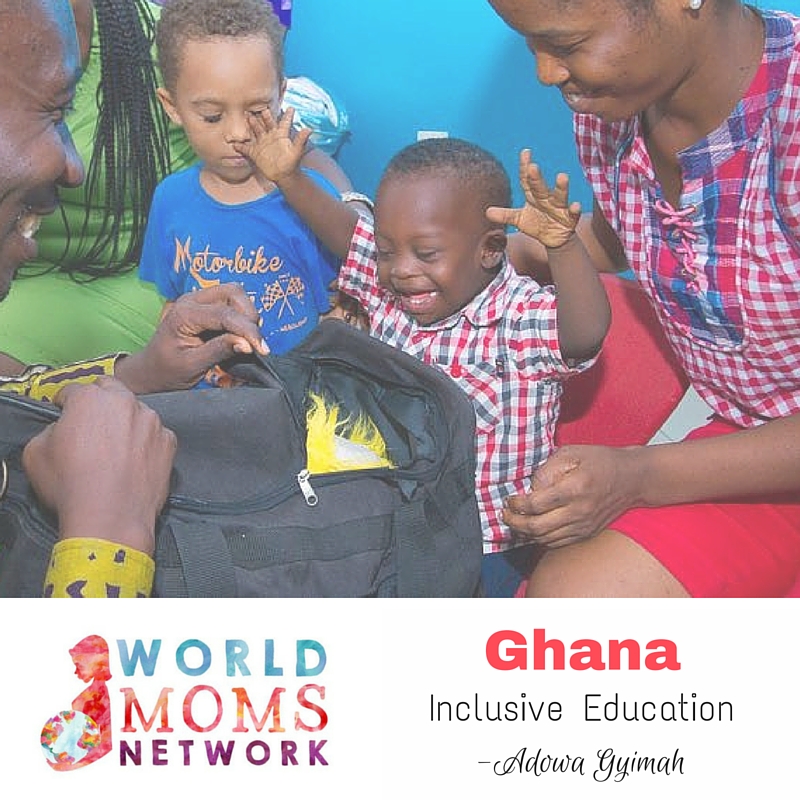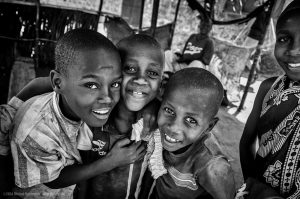
by World Moms Blog | Aug 1, 2016 | 2016, Africa and Middle East, AIDS, Health, Lesotho, Maternal Health, Mission Motherhood

As part of World Moms Network’s collaboration with BabyCenter’s Mission Motherhood®, our World Moms are writing posts on maternal health around the world. In our most recent post, Dee Harlow shared some surprising facts about HIV in Lesotho and the work of m2m in the country.
“Last week I attended, the 21st International AIDS Conference (#AIDS2016) in Durban, South Africa. Learning more about the HIV epidemic is important to me because where I live, in the mountainous Kingdom of Lesotho in southern Africa, one quarter of the near 2 million people are living with HIV. The knowledge I gained at the conference will allow me to apply the latest research and methodologies to my work on pediatric HIV and prevention of mother-to-child-transmission of HIV (PMTCT) in Lesotho. Check out these 7 facts I put together on the topic – they may surprise you!”…
Read the full post, “7 Facts that may surprise you about HIV in Lesotho“, over at BabyCenter’s Mission Motherhood®!
World Moms Blog is an award winning website which writes from over 30 countries on the topics of motherhood, culture, human rights and social good. Over 70 international contributors share their stories from around the globe, bonded by the common thread of motherhood and wanting a better world for their children.
World Moms Blog was listed by Forbes Woman as one of the "Best 100 Websites for Women 2012 & 2013" and also called a "must read" by the NY Times Motherlode in 2013. Our Senior Editor in India, Purnima Ramakrishnan, was awarded the BlogHer International Activist Award in 2013.
More Posts
by Aisha Yesufu | Jul 7, 2016 | 2016, Africa, Africa and Middle East, Communication, Education, Family, Motherhood, Nigeria, Priorities, School, Study Abroad, Travel, World Motherhood

“Mummy, is it Buhari’s fault that the economy is bad?” My daughter asked me this when she returned from school one day. She’s referring to Muhammadu Buhari, the president of Nigeria. “You must always call him President Buhari,” I corrected my daughter. Then I realised this was another opportunity to educate my daughter about economy and finances.
I told her it’s not President Buhari’s fault that the economy is bad, rather it is the choices we made as a country. I told her Nigeria is like a big family. Imagine that the father had a big job and they paid him a very good salary. In this family, perhaps the mother chose not to work because the father’s salary was so good. The family lived well, and often traveled abroad for holidays, wearing designer clothes. Everything they did was expensive. They had huge parties all the time. Their children went to expensive schools and they go abroad for treatment even for a simple headache.
The father earned well, but did not save anything and sometimes borrowed even more money to maintain their extravagant lifestyle. At one time some family members started stealing the money for their own personal enjoyment. They stole this money right out of the family account.
One day the company the father worked for was no longer able pay the father his big salary, so they gave him a pay cut. Remember, the father did not save when he was earning a high income. Remember, the family led a very expensive lifestyle. Remember, the mother had no job, so she couldn’t support the family. So, there was problem.
Eventually, a new father was brought in and the salary was reduced further and further. The family still had no savings and money was still being stolen from the family account. The new father found it difficult to support that expensive lifestyle the family was accustomed to. In this case, there would be economic problems and it wouldn’t necessarily be the father’s fault. In the meantime, the father must still deal with the people who stole from the family account, and try to recover the money.
“Do you understand now?” I asked. “Yes, I do,” said my daughter, and she went away, satisfied.
Our children know something is wrong and we need to explain to them what is going on. At a school meeting recently, I overheard a parent wondering how can she tell her child they can’t afford to pay school fees? I told them as parents you need to financially educate your children. This is not done in school, so it’s the parent’s duty to ensure that children are aware of economy and finances.
My children are part of our family’s economic life. They know what’s going on in our businesses and their father’s job. They know when things are good that we are investing, and they know why we invest. They know where the money for their school fees is coming from and what sacrifices were made to make ends meet. When business is bad, they know. At one time I thought we couldn’t pay my daughter’s school fees and I told her she had to delay a week or more before starting school (we always pay school fees before resumption date. It’s my personal stand). Luckily we managed to pay on time, but she learned that it’s a possibility and understands life sometimes throws a spanner into the works.
When we joined my husband in Abuja in 2011, my children’s school fees were fifty times higher than what we were used to paying. I had to sit my children down to explain that we needed to make sacrifices for their education. One of the decisions we made as a family was to reduce travelling abroad for holidays. So we did, and my children understood why.
In December, my daughter went to Europe for her school’s annual ski trip. She noted that there were a lot fewer students on the trip than previous years. My daughter also went to Wales this month for the Duke of Edinburgh expedition. Similarly, not all the students participating in the Duke of Edinburgh programme went for the expedition. I had to explain to her there was economic downturn and it was not easy for all families to afford such trips. At the moment, we are seriously worried about paying for education because our currency was losing value. She gave me a worried look and said, “God willing, everything will be okay.” “Amen,” I replied.
My daughter left the house a better-informed child. I hope that when she becomes an adult, she will be better prepared for economic and financial challenges because she learned about it as a child. As parents, we cannot shield our children from the reality of life. Let them learn from us and be more financially savvy.
How do you ensure that your children get a good understanding of your family finances?
This is an original post written for World Moms Blog by Aisha Yesufu in Nigeria.
Photo credit: Bob Ryskamp / Flickr

by Adwoa Gyimah | Jun 23, 2016 | 2016, Africa, Africa and Middle East, Education, Ghana, Special Needs, World Motherhood

I am often asked why I decided to enrol my mainstream children in an inclusive school. I did a great deal of research when looking for the best school for my family, and I was encouraged by the testimonials of parents who had chosen this path for their mainstream children. I decided that an inclusive education was the best choice for my children.
Inclusion in education is an approach that seeks to embrace students of all abilities, including those with special educational needs. In inclusive schools, students with special needs learn side-by-side with their non-disabled peers. This educational approach avoids the use of separate schools or classrooms to separate students with disabilities from those without.
The inclusive school I chose for my children is the first of its kind in Ghana. Multikids Inclusive Academy is an inclusive international school educating children of all educational needs and abilities in a co-existing learning environment. In this school, children with special needs are not separated from the children without – they are integrated in the same class.
The school provides the best of both worlds to children with special of all abilities. They maintain small class sizes, making it possible for every child to get the assistance and attention they need. The school envisions a society where all people can live side by side respectfully and appreciate that we each have a unique contribution to make to the world. The academy seeks to build confidence and competency in all learners, and to promote excellence through an enabling environment. In this school, every child truly matters.
I am so happy that a school like this one exists in Accra, Ghana. My children will benefit from learning side-by-side with students of all abilities, and will learn that all children can reach their potential with the right support and encouragement.
Do you have inclusive schools where you live? Would you consider an inclusive education for your child?
This is an original post written by Adowa Gyimah of Ghana for World Moms Blog.
Photo courtesy of Multikids Inclusive Academy, Ghana.

by Nancy Sumari | Jun 16, 2016 | 2016, Africa, Africa and Middle East, Home, Life, Marriage, Motherhood, Moving, Nancy Sumari, Relationships, Relocating, Tanzania, Womanhood, World Motherhood
I recently discovered that there are 5 things deemed the most stressful in life. The topic came up in a conversation I was having with a friend and I was shocked to check two boxes out of the five that were listed! Box 2. Getting married, Box 4. Moving.
“How did you get here,” begs the obvious question!
Well, we have been working on our home for a little over a year now. Like many who have done it before, we have had to learn the hard way that construction is no easy feat. Whatever your plan, expect it to take double the time and cost twice as much. Somewhere within that space, my longtime partner proposed to me. So – yes! – we also had a wedding to plan. We had originally planned for a small affair at the beginning of the year, anticipating to move into our new house before July.
As life would have it, owing to work obligations, we had to switch things around. Now we are getting married AND moving into our new home at the same time, mid-year. Through all this, I have felt tested more than ever before. In between wedding planning, my day job, community work, dealing with the construction, and being a mother, it has often left me stretched too thin!
I must say though, I feel this is what we as mothers and women are best at. We handle it, all and all. Week by week I read amazing stories on World Moms Blog about women and mothers the world over that inspire me and sustain me.
Even though, it feels like I am in the eye of the hurricane, my feet are firmly in the ground, my focus is sharper than ever, and I am not wavered in my resolve. How? Well I am a World mom aren’t I?
What challenges have you endured as a woman and a mother? How do you manage it all?
This is an original post written for World Moms Blog by Nancy Sumari in Tanzania.
Image credit to the author.

by Maryanne W. Waweru | Jun 9, 2016 | 2016, Africa, Africa and Middle East, Boys, Child Care, Cultural Differences, Kenya, Motherhood, Parenting, World Motherhood

Over a sumptuous dinner with my girlfriends last weekend, we naturally got talking about our children. One of us had just enrolled for an eight-week programme specifically for ‘Mothers with Sons’.
For a cost of about $150 USD, with learning taking place once a week (Saturdays) for two hours, the course teaches how to raise our sons into fine young gentlemen. This is a good idea, if you ask me, because there is something about the crop of young men that we are increasingly seeing in Kenyan society today –men who are not as ambitious or focused as their fathers were, and men who would rather take the back seat as women take up the role of being the heads of the home.
In Africa, and I believe the much of the rest of the world, it is traditionally men who take up the leadership of the home. However, we are nowadays seeing more and more female-headed households.
This is due to a myriad of reasons, one of them being the fact that some men are just not willing to take up that kind of responsibility. This leads to the question: how were these men raised as boys? Weren’t our core values of hard work, discipline, consistency and responsibility instilled in them by their parents? This, I suppose, forms the rationale of such a programme that my friends and I were discussing last weekend.
The majority of moms who attend the programme are urban moms – career women who have enviable corporate or NGO jobs or run their own businesses. They are in their thirties to mid-forties, with their children mostly below the age of 12 years. These are women who receive updates from Baby Center and other informative parenting sites on how best to raise children. They attend First Aid courses and other related programmes about parenting. Some of these programmes are church-based, while others are sponsored by brands that seek out these types of moms and their children. Keen on learning different things about raising their children, you’ll find many urban moms today engrossed in courses and informative material about how to best raise their children.
But as my friends and I asked ourselves over dinner – do we pass on all we learn to the people who are helping us raise our children, specifically our housekeepers and nannies? In Kenya, most middle and upper-income families employ housekeepers and nannies to help with the domestic chores and take care of the children. They are the ones who actually spend a significant amount of time with the children during the day.
With all the demands of today’s modern woman – challenging jobs that require them to leave their homes at the crack of dawn and return at about 9pm – after spending hours in the traffic jam, or checking on their small business after work, or attending their Masters’ degree programme in the evening, attending a business meeting, or even having cocktails with the girls. By the time these modern women get home, the children are already asleep. On Saturdays, these women are busy running errands or attending weddings or baby showers/bridal showers, parenting classes and other such engagements and once again, return home late in the evening. Sunday is the only day where they get to spend time with their children.
So six days per week, it is essentially the nannies who are ‘raising’ their children. Nannies actually spend more time with their children than the moms do. So my girlfriends and I wondered, do these moms then pass on the information that they learn in their expensive courses, parenting newsletters and websites to the nannies? If the nannies are the ones spending the most time with the children, should we not focus on giving them the wealth of information we seek out about raising children? We didn’t get an answer, but I hope we will sometime.
This is an original post to World Moms Blog by World Mom, Maryanne W. Waweru of Kenya of Mummy Tales.
Photo courtesy of Michal Huniewicz / Flickr.
Maryanne W. Waweru, a mother of two boys, writes for a living. She lives in Nairobi, Kenya with her family. Maryanne, a Christian who is passionate about telling stories, hopes blogging will be a good way for her to engage in her foremost passion as she spreads the message of hope and faith through her own experiences and those of other women, children, mums and dads. She can be found at Mummy Tales.
More Posts - Website

by Ketakandriana Rafitoson | May 26, 2016 | 2016, Africa, Africa and Middle East, Madagascar, World Motherhood
I am writing this post in chilly Dublin, far away from home. I miss my family and I’m happy to go home soon. I have to stay awake in order to catch my flight and seize this moment to write about a story which recently marked my life.
On May 10, I met Ban Ki-moon, the UN Secretary-General and his wife, in my hometown, Antananarivo. The local branch of UNHCHR sent me a personal invitation a few days before, and then someone recalled me saying that I’ve been dropped from the list….Two days later, they called me again to say that I’m on the list. It was quite weird! In fact, it appeared that some UN people didn’t want Mr Ban to meet civil society representatives because they had the feeling that CSOs are “disturbing”, “always critical”, “negative”, and so on….
But someone fought for us and finally, my name was put on the list among 11 other people. I was officially supposed to represent Liberty 32, a non-profit which mainly deals with civic education and human rights, but I also wanted to say something on behalf of Wake Up Madagascar, a nonviolent civil resistance movement that I’m part of.
I thought about a genuine way to pass a message to Mr Ban, which was “Don’t let Malagasy politicians fool you. Our reality is far more horrible than what they will show to you.” In fact, a few days before Ban’s arrival to Madagascar, streets were cleaned, merchants chased from their daily places and misery hidden. Shameful!
On May 9 the 12 of us were asked to meet local UN representatives for a briefing.
They told us to be constructive, not to openly criticize the government because this will put Mr Ban in an “uncomfortable position’. I was more than upset to hear that, and that strengthened my need to do something exceptional.
The D-day, we’d been given an appointment in one of the most luxurious hotels of Antananarivo. No pictures allowed, last briefing remarks. We were ready to meet THE man.
He arrived with his wife and staff, very cool, smiling, and frank. We took an official photo (which we haven’t yet seen since), and we sat down around a square table. After the usual opening remarks and self-introductions, Mr Ban said a few words about his visit, saying that he has always worked with civil society and that this meeting was crucial to him. Then, our representative read our common declaration for 5 minutes.
Afterwards, the Chair asked if someone would like to briefly take the floor. I grabbed the mic and said all I wanted to say in 2 minutes: women and youth problems, insecurity, political instability, fragility, the need to improve citizens’ political participation, and so on. I ended by asking the permission to give Mr. and Mrs. Ban a small gift. Security guards and policemen stood right on their feet but the SG allowed me to do so.
I offered them a special photo album prepared by Wake Up Madagascar – and which I hid as my notebook while entering the room. 15 striking photos showing Malagasy people’s misery and extreme poverty…. I kindly asked Mr Ban not to throw it away, and I believe (I hope) he didn’t…. After answering our talks in a very sincere way, he kept the album with him, didn’t give it to his assistant, as he left us.
On May 11, Mr Ban gave an address before MPs and the government, and his words were sharp as a knife. Have our messages reached their destination? Who knows? I wanted to share this story because it made me so proud. Being a mom implies taking some risks, not only for your family, but also for your country. Don’t you ever let someone tell you to close your mouth when you have something important to say! Speak up! Speak out! That may change some lives! I don’t pretend I’ve changed the world, but I stood for my world, at my small scale. And that matters.
This is an original post for World Moms Blog by Ketakandriana Rafitoson, our new contributor from Madagascar.
Photo courtesy of Inge van Mill, via Minister-president Rutte / Flickr.













